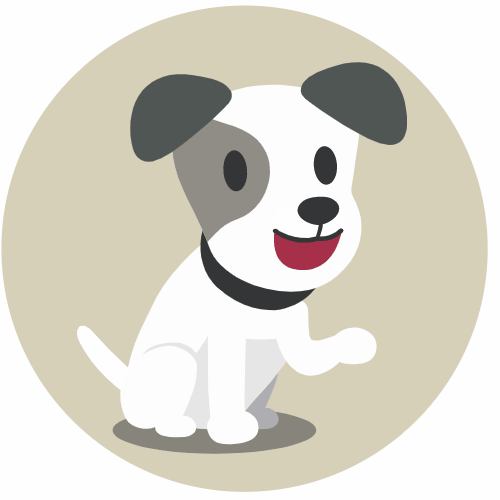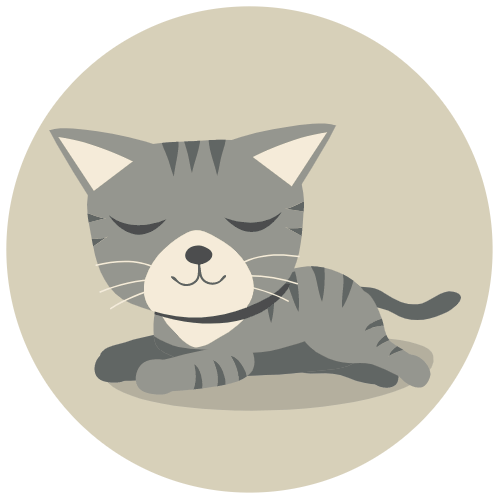your puppy or kitten needs
FREQUENT VETERINARY VISITS
within their first year so we can make sure they're healthy and starting their new life on the right paw.
In some ways, bringing a new puppy or kitten home is like bringing a new baby home. One of the obvious differences, of course, is that your pet will already be running around, exploring, and seeking things to play with or chew on. Pet-proofing your home when you have a puppy or kitten is a must, but what’s equally important is their first visit to Hudson Animal Hospital!
What to Expect at Your Pet’s First Visit
Our team at Hudson Animal Hospital can’t wait to meet your new puppy or kitten. Your pet’s first visit gives us the opportunity to examine them from nose to tail to make sure everything is normal. This exam also includes a check of their vital signs and body weight. We’ll create a health baseline to be used for future visits so we can be sure your pet is growing and developing properly, and that there aren’t any abnormal changes from visit to visit.
This first visit will also include a fecal exam to check for intestinal parasites, so don’t forget to bring in a fresh stool sample. We’ll also administer vaccines to protect them from potentially serious illnesses. Since multiple vaccines and boosters will be needed after this initial visit, we’ll need to see your pet a few more times within the next couple of months to build up their immunity.
Whether you’re an experienced or first-time puppy or kitten owner, we’ll provide you with important information about how to care for them at home. We’ll also discuss the importance of training, diet, and parasite prevention.

The Importance of Spay/Neuter Surgery
Spaying or neutering your pet can protect them from various reproductive diseases. These procedures have also been proven to reduce or eliminate unpleasant animal behaviors, such as “humping,” marking, and aggression. We’ll be glad to talk with you in more detail about how spaying/neutering can benefit your loved one and what you can expect before and after your pet’s surgery.
HOW DO I SET A POTTY TRAINING SCHEDULE?
- First thing in the morning
- Last thing at night
- After spending time in a crate
- Upon waking up from a nap
- After eating or drinking
- Time between potty breaks
should be no more than 2-4 hours
HOW DO I CRATE TRAIN MY PUPPY?
- Dogs like clean “home” areas and are less likely to have accidents
- Place crate near exterior door for quick relief
- The crate should be big enough for your puppy to stand up, turn around, and lay down
WHEN SHOULD I REINFORCE GOOD BEHAVIOR?
- Don’t scold your puppy for having an accident
- Praise them for doing the right thing
- Reward them with treats, pats, and attention
How do I get my puppy to stop bad behavior?
WHAT CAN MY PUPPY CHEW ON?
- Chewing is a calming mechanism for puppies
- Keep chewing toys around the house; when they start to chew on toys instead of household objects, give them praise
HOW DO I STOP MY PUPPY FROM BARKING?
- Scolding your puppy when they bark can make it worse; instead, ignore barking and praise quiet
- Training your dog to sit helps them fight impulsive barking when they want something
HOW DO I STOP MY PUPPY FROM BEGGING AT THE TABLE?
- Feed them first before you eat
- Create a cozy “go-to” spot near the table where they can be comfortable
- Praise them with treats when they don’t beg
How do I feed my puppy?
HOW OFTEN DO I FEED MY PUPPY?
- 6-12 weeks: 4x a day
- 3-6 months: 3x a day
- 6-12 months: 2x a day
- After a year: 2 half portions a day
- Watch your puppy to gauge if they are eating healthy
WHAT FOOD SHOULD I FEED MY PUPPY?
- Look for AAFCO guidelines
- Look for age and health specific formulas
- Ask your vet for tailored recommendations
WHAT ARE HARMFUL FOODS FOR PUPPIES?
Dairy, chocolate, grapes, and sugary foods, snacks, or desserts
WHAT THINGS SHOULD I BUY FOR A KITTEN?
- Scratch posts (helps preserve furniture!)
- Litter boxes, cat carriers, and food and water bowls
- Stain and odor remover
WHAT SHOULD I MOVE OUT OF THE WAY?
- Toxic plants
- Cleaners and sprays
- Any dog food that might be in the house
HOW CAN MY CAT BE COMFORTABLE?
- Bed and blanket
- Small, cozy space
- Grooming supplies
- Pheromone products
How should I play with my kitten?
HOW DO I PLAY SAFELY WITH MY KITTEN?
- Use balls, jingles, anything on a string, and cotton chew toys
- Avoid “play” with your hands to avoid injury when full grown
WHAT ARE THE BENEFITS OF PLAYING WITH YOUR KITTEN?
- Strengthens your bond with your kitten
- Allows them to release energy that could lead to damage
- Builds trust and comfort for them within a new home
HOW OFTEN SHOULD I PLAY WITH MY KITTEN?
- 20+ minutes of play per day
- Set aside at least two times a day preferably early in the morning and late at night
How do I feed a kitten?
HOW OFTEN SHOULD I FEED MY KITTEN?
- Dry food only: set feeding schedule
- Wet food only: feed at least four times a day
WHAT SHOULD I FEED MY KITTEN?
- Look for AAFCO guidelines
- Look for age and health specific formulas
- Ask your vet for tailored recommendations
WHAT ARE HARMFUL FOODS FOR KITTENS?
- Raw meats, eggs, raw fish
- Grapes, chocolate, and dairy




